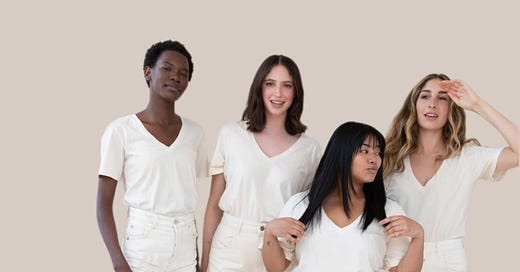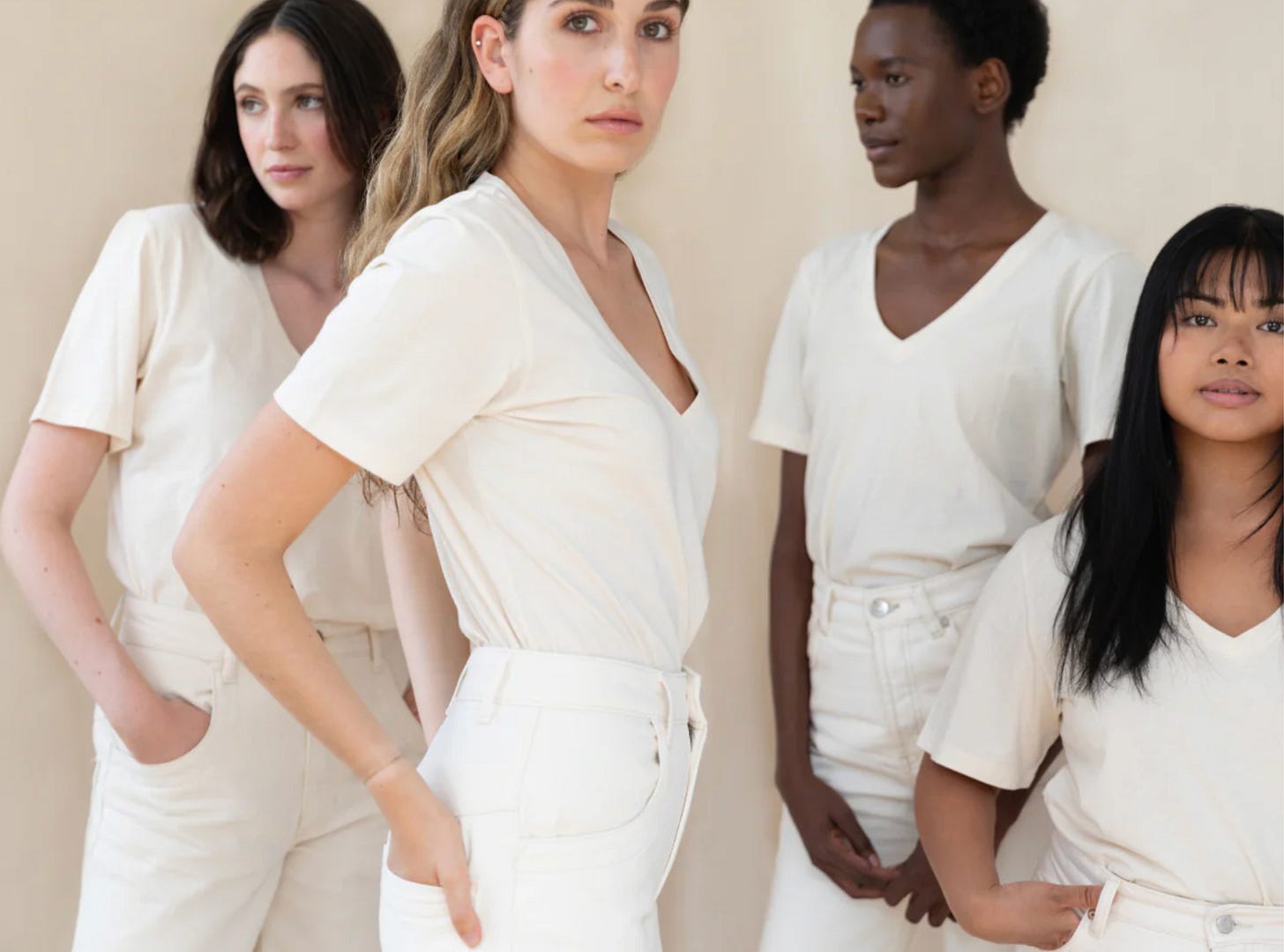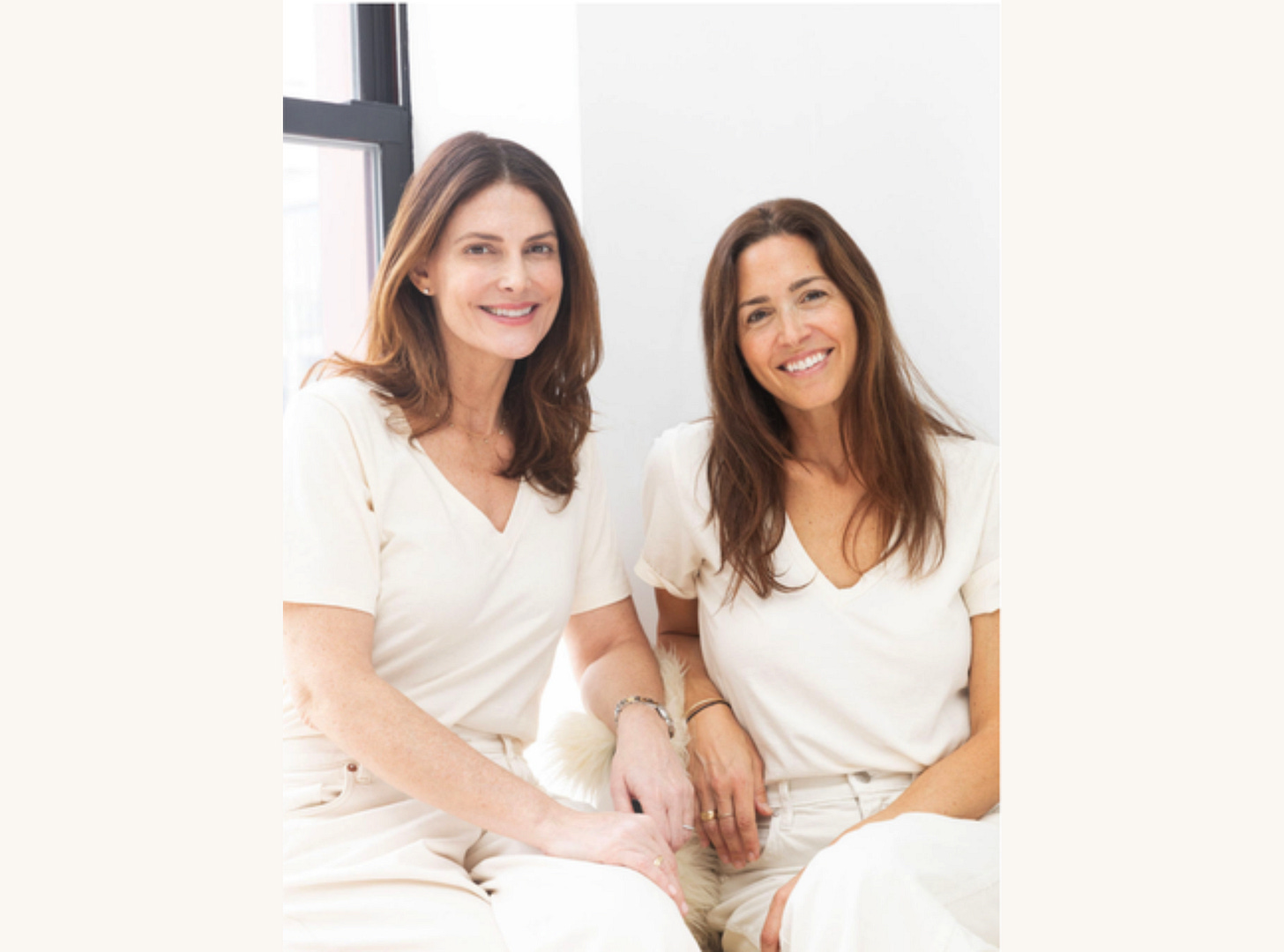ROTE: Redefining the Perfect Tee
While a soft, fashionable, toxic-free tee is something everyone can celebrate, it can be particularly welcoming if you have any sort of pain or challenge where a soft, easy-to-wear shirt is welcome…
We are particularly excited about ROTE; the female-founded clothing brand that strives to refashion how we think about what we wear and the toxins in much of our clothing. Founders Nadia Gagnier and Sara Roter are also taking a stand in calling for higher standards of transparency to the pollutants and chemicals in the garment manufacturing process. It's Time to Come Clean™ is the brand's tagline and a mission we can all get behind.
Meet the Founders
Sara and Nadia are not dissimilar to many of the female entrepreneurs we've been lucky enough to meet over the years. They are supremely talented, with deep experience, and an itch to have more control and a bigger impact than would otherwise be possible when working in the corporate world.
Between the two is an impressive and long list of well-known brands as clients and employers, and a high-level of operational expertise garnered over decades in the fashion industry.
So it's no surprise that over drinks and coffee around day-to-day life, Sara and Nadia slowly began to hatch an idea that played to their collective strengths, passion, and experience. Because, as Nadia points out: once you have compared notes with someone like-minded, it's too tempting not to consider how you could make a difference together.
For Sara and Nadia, that difference was in creating that single 'perfect' (and often elusive) t-shirt. But the ROTE way is a tee fully toxic-free.
What Does 'Clean' Actually Mean?
What most of us don't know (and Sara and Nadia would say they know all too well) is that our clothing is steeped in a long list of chemicals. And possibly more unnerving is how willing we are as consumers to buy into sustainability messaging and 'green' marketing without curiosity. Because, like with anything, the truth is so much more complicated and multi-faceted than a marketing tagline can capture.
For Sara and Nadia, the topic of chemicals in clothing and home goods is one they have given significant consideration to over the years.
Sara's passion is also borne of something even more personal: with a long family history of breast cancer, she tested positive for the BRCA1 genetic mutation nearly two decades ago and opted to have a prophylactic bilateral mastectomy; and later an oophorectomy and hysterectomy.
So it's no surprise that this proactive powerhouse entrepreneur would dedicate herself to proactive health inquiry. It is also why she became an ambassador to Bright Pink, a breast & ovarian health venture philanthropy fund. Sara's passion for asking questions and educating women is the approach she wants to bring to ROTE.
As Sara rightly says:
“There is no reason that our consumption of fashion should be any different in approach to the way we purchase beauty products or food. We should know the list of ingredients and be able to make decision based on a brand's full transparency.”
Clothing as Wellness
It's clear that what we wear has an impact on our health and wellness. From how it allows us to move and pursue exercise and sport; to addressing issues around skin conditions (e.g., cotton is best for any skin irritation such as psoriasis or eczema). A cool cotton tee can also help menopausal women with hot flashes; and, of course, clothing can also impact our mental health (from providing comfort to jumpstarting one's confidence).
Not wanting toxicity to be transferred from our clothing to skin should be a no-brainer. But it's actually a very hard state to achieve.
Building the Perfect T-Shirt
What surprised Sara and Nadia most on the journey to the creation of a hero product was how hard it was to demand better. And while the pandemic posed its own set of hurdles to moving forward, the women found the response to their requests and questions to factories to be disappointing. But it not only did not deter them, it inspired the brand's bold tagline: It's Time to Come Clean™
Our Chat With the Founders
Why a t-shirt?
ROTE: We love a good t-shirt! And we were always on the hunt for the 'perfect white tee,' so it was a logical start.
We wanted to start with a single 'clean' tee because t-shirts are more likely to be tossed; are less likely to be considered a luxury item; and most people are oblivious to even what goes into making a single t-shirt. But the process, development, waste and chemicals all along the way are incredibly eye-opening.
So our aim was to strip it all back and make that one 'clean' tee that allows for a simple and straight-forward conversation about the types of chemicals we are working to keep out of our garments. Easy! Well, not easy at all.
What did you end up learning?
ROTE: Creating a 'clean' product free of a non-negotiable list of toxicity is almost impossible to achieve.
Most consumers (and designers) are not fully aware, or even think about, what the process entails; and how it's so lengthy you need to fight to keep chemicals out each step of the way.
For instance: want organic? Well, farming organically removes run off and toxic chemicals during the farming stage but by the time consumers put the garments on the chemicals are likely layered back in via other processes such as in adding dye.
Color? Well, a natural dye collection is awesome, but if you are just putting the dye onto an article f clothing that is already full of chemicals, you are basically putting a band-aid on the problem.
Of course, every bit helps. And when it comes to sustainable fashion, if designers do their part to be better, it's a great start.
Should people think about clothing as a health & wellness product?
ROTE: Absolutely, we encourage our consumers, or potential consumers, approach our collection (and challenge other brands they shop) as they would do with their food and other wellness products in their lives. You should be able to know if there are toxic chemicals in the garment you are about to put on your body, in the same way you would consider ingredients before applying beauty products. Or in the same way that you are thoughtful about the food you eat.
The ideal approach would be to combine directives from both the FTC and the FDA and require more information to be included on garment tags. Because right now, only a few specifics are required on a garment label. These include: origin of manufacture, brand, fiber content, size, and washing instructions.
It's not enough. The chemicals used in the manufacture of an item need to be clearly listed on a label. And this is what we hope to raise more awareness with consumers.
What feedback have you received?
ROTE: The best feedback we tend to hear from consumers is… “I never thought about that.” In fact, our brand name is all about the process of learning. Because ROTE, of course, means the mechanical or habitual repetition of something to be learned. Our customers are also often surprised that a tee shirt can be both toxic-free, fashionable and soft.
What's Next for the ROTE Brand
The first tee shirt from the brand had an unexpected, and fitting, twist- because when you lead with a 'toxic-free' approach, you may be surprised with certain outcomes.
In the case of pursuing the 'perfect white tee', Sara and Nadia realized that adding bleach to the no-go list meant that a ROTE white would be a bit creamier and more natural. Ironically, this more natural off-white color is quite beautiful and arguably a better 'white.' Another surprise is how soft and durable a cotton free of toxicity and excessive processes can feel.
Finally, ROTE launched as a B-Corp, which is a certification that for-profit companies receive heralding their 'social and environmental performance.' It's a rigorous process to become a B-Corp and proof that ROTE is not messing around.
To shop rote or contact the founders, visit: rotenyc.com




